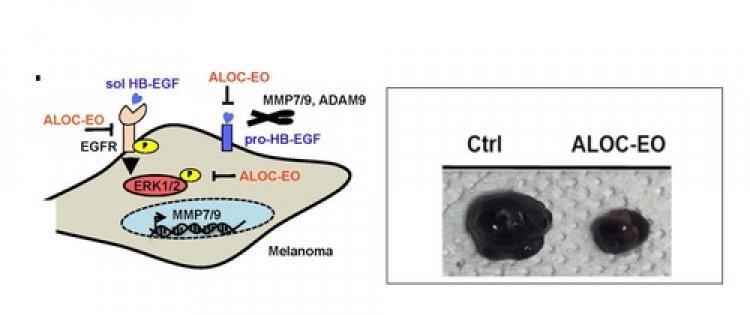Juntendo University research: Aromatherapy in medicine: Essential oils prove to be effective against skin cancer

TOKYO: In a study recently published in the International Journal of Molecular Sciences, researchers at Juntendo University show that essential oils extracted from the lemon verbena plant can inhibit the growth of skin cancer
Melanoma is an aggressive form of skin cancer with a low survival rate. What's more, patients often become resistant to the currently available forms of chemotherapy and stop responding to treatment. New forms of therapy for melanoma are thus under great scrutiny. In a partnership between Juntendo University and An-Najah National University, a group of researchers have recently shown that oils derived from the lemon verbena (Aloysia citrodora) plant have proved useful in this regard.
Aloysia citrodora essential oils (ALOC-EO) have been shown to possess anticancer properties in breast cancer models. To investigate similar effects in skin cancer the team first employed melanoma cells. When the cells were incubated with ALOC-EO, a suppression in their growth was indeed observed. Now, the growth of melanoma cells depends on an intracellular protein known as ERK1/2. When ERK1/2 was closely inspected it was found to be blocked after ALOC-EO treatment. Similar observations were seen in mouse models of melanoma.
Another critical but fatal feature of melanoma is its ability to move to distant organs within the body. Therefore, the effects of ALOC-EO on the migration of tumors was inspected next. Indeed, cells treated with ALOC-EO showed reduced migratory potential. Molecules that prevent cells from adhering to a surface (thereby enabling them to migrate) were also reduced after ALOC-EO treatment.
A cellular pathway that regulates certain types of melanomas is known as epidermal growth factor receptor (EGFR) signaling. When heparin-binding-epidermal growth factor (HB-EGF), a signaling protein, binds its partner (EGFR) a chain of events is set into motion which ultimately leads to uncontrolled cell growth, the classical cancer feature. However, ALOC-EO was found to obstruct the binding of these partners. The EGFR pathway is also responsible for the resistance that cancer cells develop when treated with chemotherapeutic drugs. Upon exposure to these drugs, melanoma cells stealthily start producing more EGFR and HB-EGF. However, when mice were treated with chemotherapeutic drugs in conjunction with ALOC-EO, this mechanism was negated. ALOC-EO thus not only prevented the growth and spread of skin cancer but also kept drug-resistance developed by melanoma cells in check.
"In summary, our study demonstrates that ALOC-EO blocks EGFR and ERK1/2 signaling, with preclinical efficacy as a monotherapy or in combination with myelosuppressive drugs in melanoma," conclude the researchers. While these effects still need to be explored further, the use of ALOC-EO might just make the treatment of skin cancer easier. More time for us in the sun, perhaps."















































